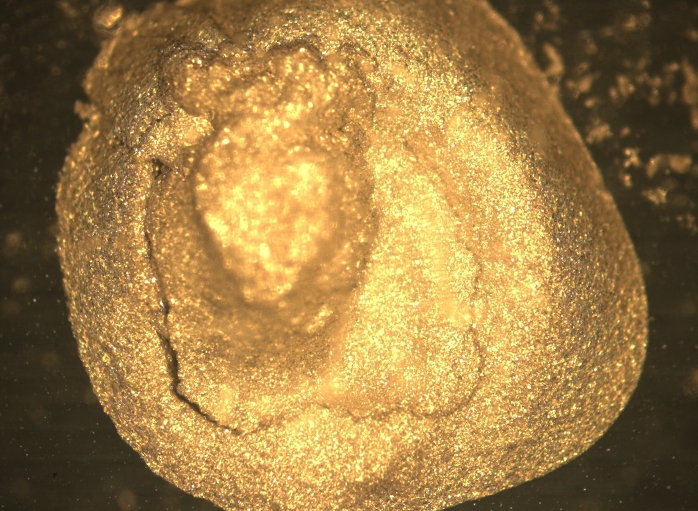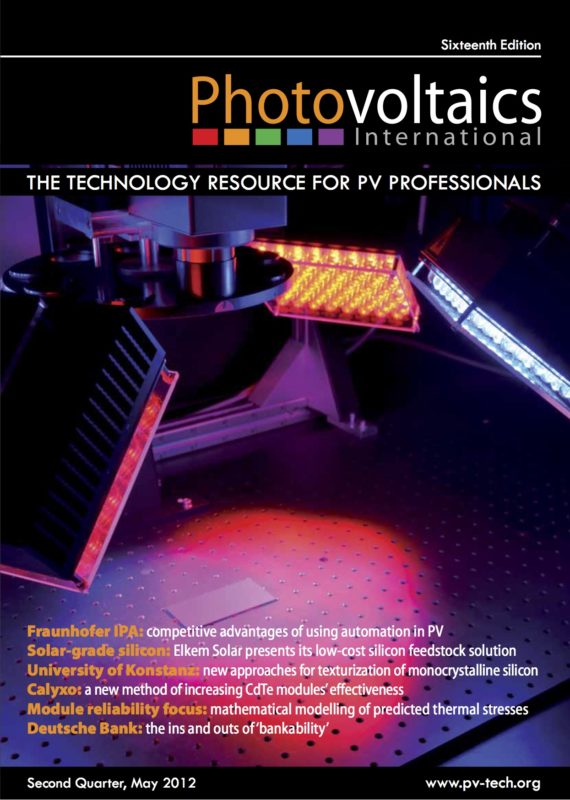By Markus Münch, Team Leader, Solarion AG; Annegret Reithe, Solarion AG; Melina Wachsmuth, Solarion AG; Michael Meißner, Solarion AG; Eva-Maria Stahr, Solarion AG; Mike Röllig, Head of the Department of Test and Diagnosis Methods, Fraunhofer Institute for Non-destructive Testing (IZFP-D)
Flexible copper-indium-gallium-(di)selenide (CIGS) absorbers offer a wide range of possible applications in rigid as well as flexible and lightweight solar module designs. The main advantage of CIGS in comparison to the well-known flexible module technology based on amorphous silicon is its currently higher efficiency and the promising optimization potential of its efficiency in the future. Because of low cell thicknesses of less than 40µm and the general sensitivity of CIGS to moisture, it is a challenge to develop suitable interconnection and encapsulation technologies that promote long-term reliability of solar modules. Selected aspects of our work in this area will be discussed in this paper.



